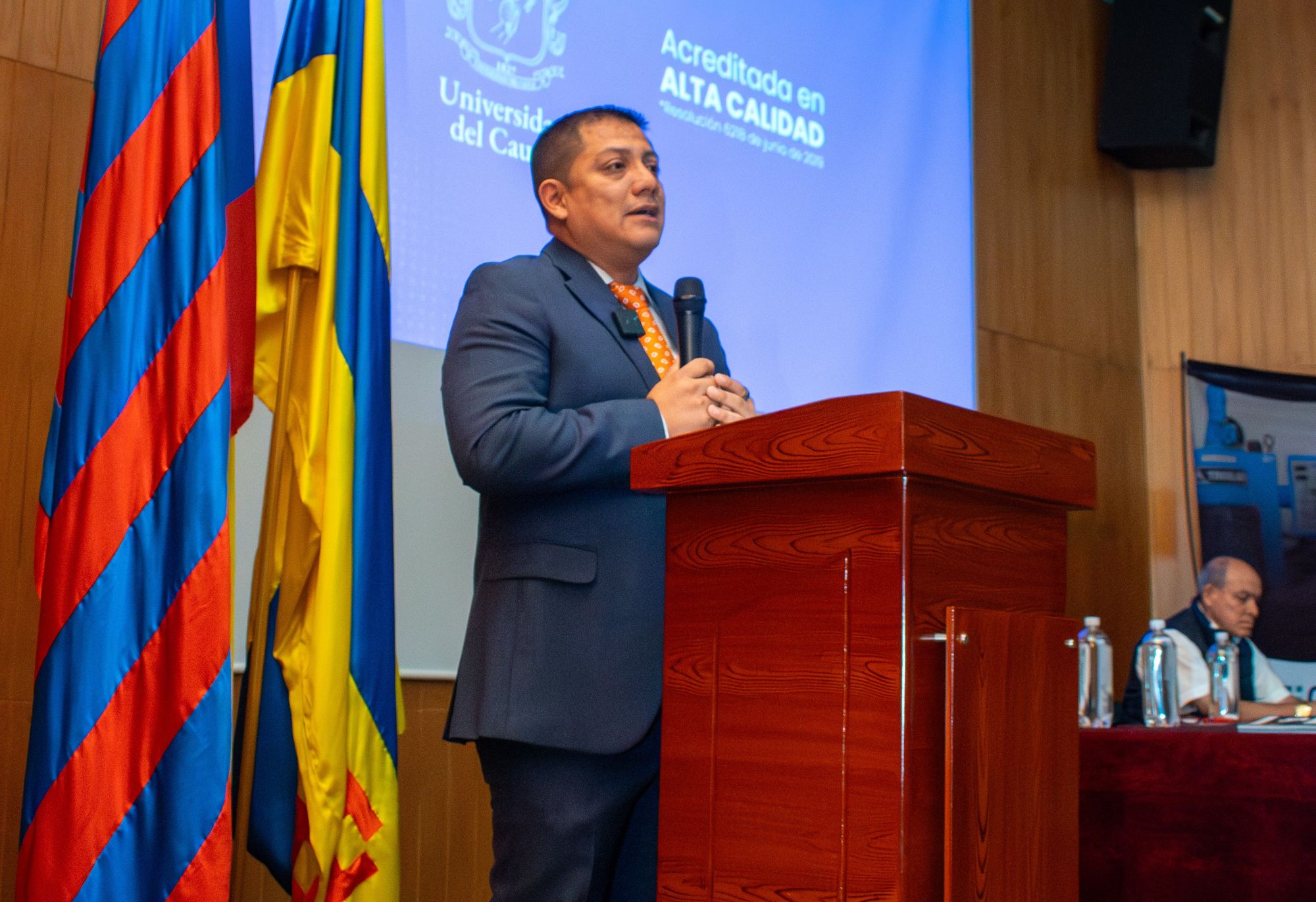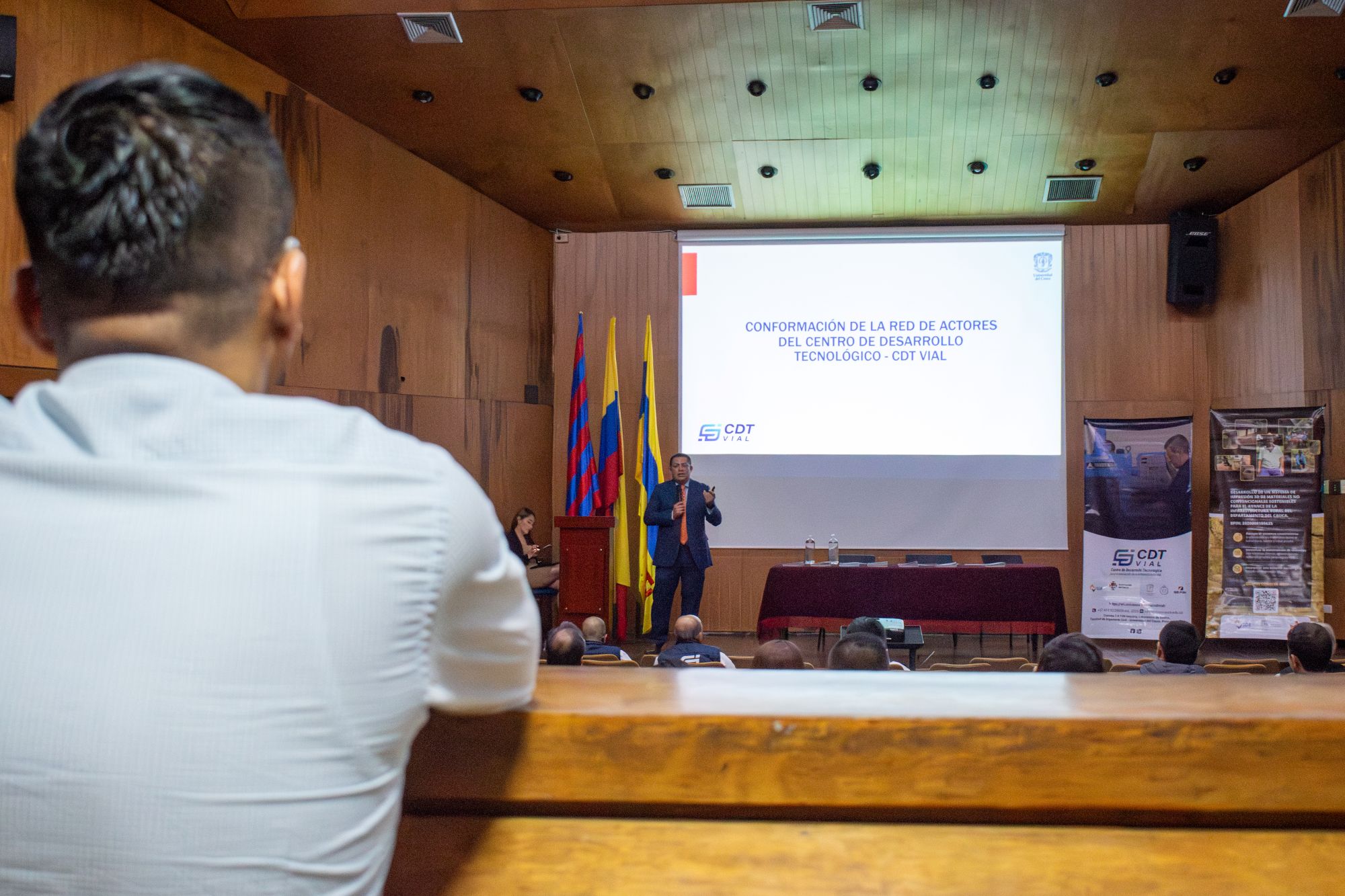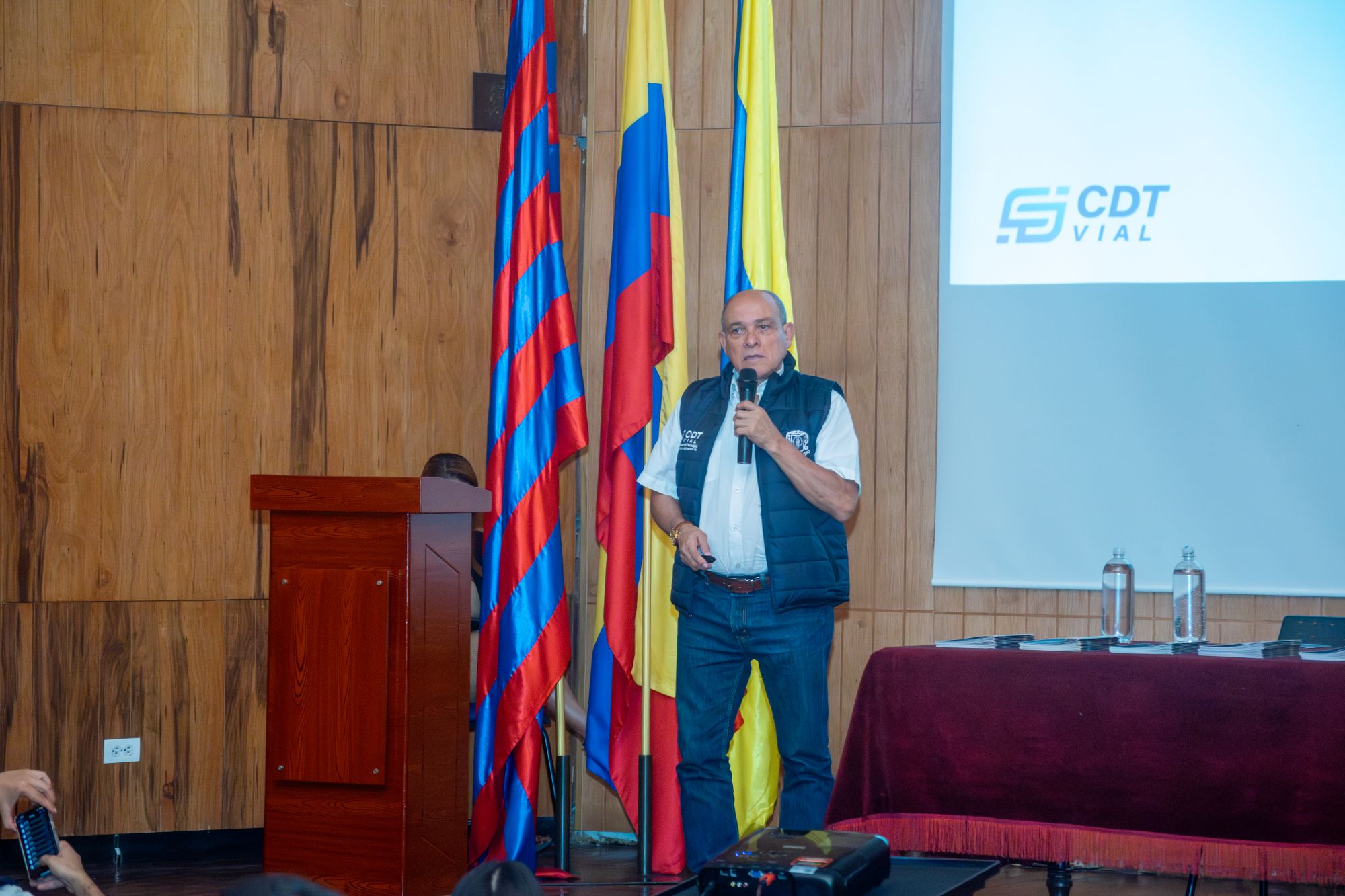News
CDT Vial and 3D Printing: Two Key Research Projects for Regional Development
On Friday, March 21, at the Francisco Lemos Arboleda Auditorium of the Faculty of Electronic Engineering and Telecommunications at the University of Cauca, the presentation of two key research projects for regional development took place.
The event was led by Professor Jaime Rafael Obando Ante, Director of the projects, who, along with his team, presented the progress, objectives, and impact of each initiative. The presentation was attended by representatives from the local governments of beneficiary municipalities, community action board presidents, master builders, and key community members who have actively contributed to the research phase. Additionally, students, faculty, business representatives, and community leaders participated, with a notable presence of Engineer Nelson Rivas, Acting Dean of the Faculty of Civil Engineering.

Thus, the progress of the following projects was presented:
- Technological Development Center for Innovation in Road Infrastructure in the Department of Cauca (BPIN 2018000100167).
- Development of a 3D Printing System for Sustainable Non-Conventional Materials for Rural Infrastructure (BPIN 2020000100625).
CDT Vial Project
During the session, the progress of the Technological Development Center for Innovation in Road Infrastructure in the Department of Cauca (CDT Vial) was presented, highlighting innovative technological solutions to improve the durability and sustainability of rural roads.

Provided photo
Three technological alternatives currently being evaluated in a 1 km test section between La Tetilla and La Meseta were discussed:
- Geocells: Structural reinforcement using geosynthetics.
- Eco-materials: Use of demolition waste for sustainable paving.
- Recycled rubber: Incorporation of rubber granules in surface treatments.
These field tests aim to implement viable, sustainable, and efficient solutions for rural mobility in Cauca.
Engineer Aldemar González introduced the CDT Vial Project Network of Stakeholders, emphasizing its role as a collaborative space to enhance the implementation of these technologies in the region. Finally, a Q&A session allowed representatives from beneficiary municipalities to express their interest in replicating these solutions in their territories.
To learn more about this project, visit bento.me/cdtvialunicauca (https://www.unicauca.edu.co/noticias-actualidad/cdt-vial-e-impresion-3d-...), where you can access social media updates and additional information.
3D Printing Project
In the second part of the event, the findings of the project "Development of a 3D Printing System for Sustainable Non-Conventional Materials for Rural Infrastructure" (BPIN: 2020000100625) were shared. This initiative aims to strengthen and revive traditional construction systems through innovative technologies. By using adobe, bahareque, and rammed earth, the project promotes sustainable construction that respects ancestral knowledge and makes use of local resources.

Provided photo
The research results were presented based on work conducted in six targeted municipalities: Sotará, Timbío, La Sierra, Páez, Bolívar, and Caldono. In each location, 16 homes were inspected to assess their structural condition, materials, and construction techniques. Additionally, the experiences of local residents were documented, highlighting the importance of empirical knowledge in architecture.
At the end of the event, attendees received a certificate of participation and a printed booklet summarizing the key findings for each municipality.
To learn more about this project, visit bento.me/sistema-de-impresion-3d (https://www.unicauca.edu.co/noticias-actualidad/cdt-vial-e-impresion-3d-...), where you can access social media updates, digital booklets, newsletters, and a Spotify podcast featuring the results of this project's first phase.
The CDT Vial Project team and the 3D Printing Project team at the University of Cauca express their gratitude to all individuals and institutions that contributed to this research and its dissemination, fostering technological and sustainable development in the region.
Written by: Communications Management Center

